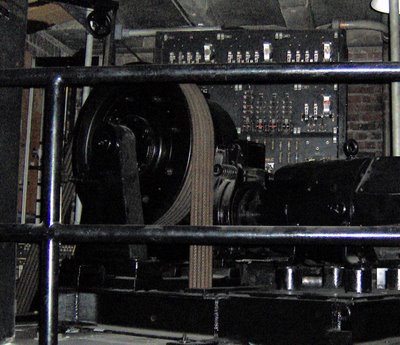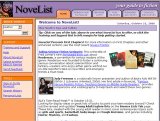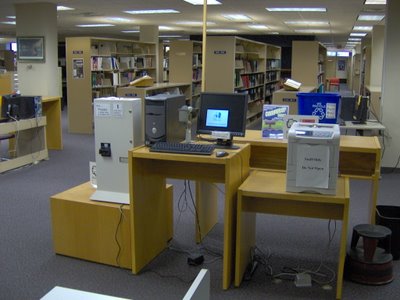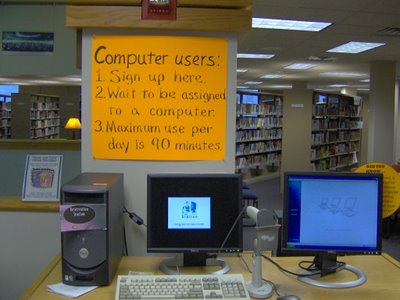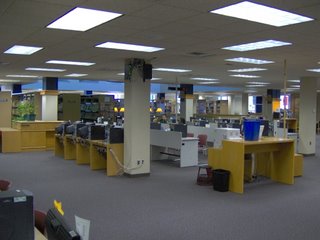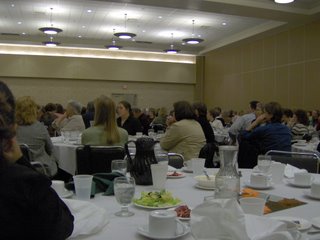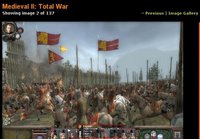 The Waterloo and Cedar Falls public libraries provide patrons with high-speed Internet access on a total of 49 Pentium class computers. There are some days when as many as 80% of the boxes are monopolized by gamers. This leads to complaints from non-gaming patrons as well as loud sighs from staff.
The Waterloo and Cedar Falls public libraries provide patrons with high-speed Internet access on a total of 49 Pentium class computers. There are some days when as many as 80% of the boxes are monopolized by gamers. This leads to complaints from non-gaming patrons as well as loud sighs from staff.Many public libraries go so far as to ban game playing on public computers, presumably so that the machines could be used by patrons doing more worthy tasks--such as online dating, gambling, shopping, or pornography--more typical "adult" activities. Such controversy is not new to the public library world. When the free public library concept was getting its legs, back in the mid-19th century, it was pitched as a way to help the lower classes uplift and separate themselves from misery and ignorance.
The result of this noble intention? The Carnegie foundation's prescribed opening day collections consisted mostly of non-fiction works with very few novels or periodicals. Very soon, librarians realized that the bulk of their circulation was generated by a very small proportion of the collection: fiction and periodicals. So, from the very beginning, public libraries have struggled with how they should allocate resources: recreation or education?
Education theorists are now suggesting that maybe gaming is a way of learning and that multimedia gaming might become the way of the future, thereby melding the allure of gaming with the desire for educational achievement. In fact, some speculate that notion of universal text-based literacy is an aberration. They have a point. Prior Guttenburg's press most people learned by memorizing either poems or songs. Rather than record information as text, they "recorded" it in their memories. Maybe sitting around the hearth, memorizing songs and poetry was a combination of recreation and learning.
One might note that while text based illiteracy is indeed the historical norm, according to Hobbes, "solitary, poor, nasty, brutish, and short" lives were also the norm. If the rise of text-based literacy also led to more pleasant lives, any transition back to multimedia literacy should be watched with caution--if not alarm. Let's hope that the use of computers will allow the reluctant readers to maintain high levels of intellectual function through the more normal multimedia means of sound, pictures, and motion.
Meanwhile, it looks as if games are here to stay, and rather than drive the gamers away, libraries should look for ways to service their recreational and intellectual needs. My favorite site for monitoring gaming activity in public libraries is the wiki, "Gaming," which is the best clearing house for library gaming topics that I've been able to find thus far. If you see something better, or as good, beam it over as a comment. And while you're at it, be thinking about what we can do to serve all of our patrons fairly: gamers and non-gamers alike.
